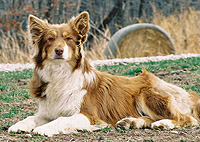Help Protect Your Pets and Family from Rabies
Launched in 2007, World Rabies Day (September 28) aims to raise awareness the health impact of human and animal rabies. According to Dr. Charles Rupprecht, former chief of the rabies program at the U.S. Centers for Disease Control and Prevention, “Your local veterinarian plays a key role in controlling rabies.”
So what can you do to help protect your pets and family? Vaccination is key.
Rabies is a fatal disease of the nervous system. It is caused by a virus that can infect all warm-blooded animals, including humans. The virus attacks the brain and spinal cord, causing severe nervous system dysfunction and eventually death. While instances of rabies infection are lower than ever, the disease remains a continuing problem. Vaccinating your pet against rabies is a key prevention method.
The most common way to contract rabies is through a bite from an infected animal. When a rabid animal bites, the rabies virus in its saliva passes through the broken skin of the victim. Rabid cats can also transmit rabies through their scratches if they have saliva on their paws.
Skunks, bats, coyotes, foxes, and raccoons are very susceptible to rabies. Cats, dogs, cattle and horses usually contract rabies through encounters with rabid wildlife.

Raccoons are very susceptible to rabies.
The symptoms of rabies can be quite varied. In general, the disease shows three stages that occur in succession. (NOTE: not every animal will display these signs, so any animal behaving abnormally should be regarded with suspicion.)
- Stage 1 – Attitude Change: The animal may show nervousness, shyness, aggression or other changes in its normal personality. May show a lack of fear of humans.
- Stage 2 – Furious or Excitable Phase: Animals may become extremely agitated, or behave erratically. Animals may bite and snap at anything. Wild animals may wander into unaccustomed areas and attack livestock, people or pets. The tone of an animal’s voice may change as its vocal cords become paralyzed. Seizures may occur.
- Stage 3 – Paralysis: Victims become progressively paralyzed. Animals may be unable to move their hind limbs and unable to swallow, resulting in choking and frothing at the mouth. This phase ends in death, usually from paralysis of the respiratory muscles.
Rabies cannot be diagnosed with certainty based on symptoms alone. The suspicion of rabies can only be confirmed by testing samples of an animal’s brain tissue.
Vaccination is an inexpensive, effective means of protecting your animals from rabies. All pets should be vaccinated regularly against rabies.
You can minimize the risk of rabies by avoiding close contact with wildlife. Remember, rabid animals often lose their fear of humans and may appear unusually friendly. Ensure that your house is unattractive to wild animals by keeping garbage bins securely fastened and sheds and garages closed. If your domestic animals are bitten or scratched by a wild animal, consult the veterinarians at Mandarin Animal Hospital.

Vaccination is key to preventing rabies in your pet.
If you think you’ve been exposed to rabies, prompt medical attention is essential. If you’ve been bitten by any animal, clean and disinfect the wound thoroughly, then contact your physician or local health authority immediately. If the biting animal can be confined without further danger, it should be kept in a secure area while waiting for public health authorities to arrive. Depending upon the circumstances, the health authorities may choose to quarantine the animal for monitoring, or euthanize it for testing. The animal’s vaccination status influences this decision.
Remember – rabies is a fatal disease in humans! Every biting incident should be investigated, even if the animal in question appears healthy.
If rabies exposure cannot be ruled out, people who are bitten are usually treated with a series of injections. There is no treatment for animals that have been exposed to rabies. In both humans and animals, the disease is almost always fatal once symptoms of nervous system dysfunction appear. For more information about rabies, contact your local veterinarian or public health official.
Prevention is the key to combating rabies. Make sure pets and high-risk livestock are vaccinated properly. Ask the veterinarians and medical team at Mandarin Animal Hospital about the best vaccination protocol for your pets or livestock. Keep away from wild animals, no matter how friendly they appear. Keep wild animals away from your home by securely fastening garbage bins and closing garages and sheds.